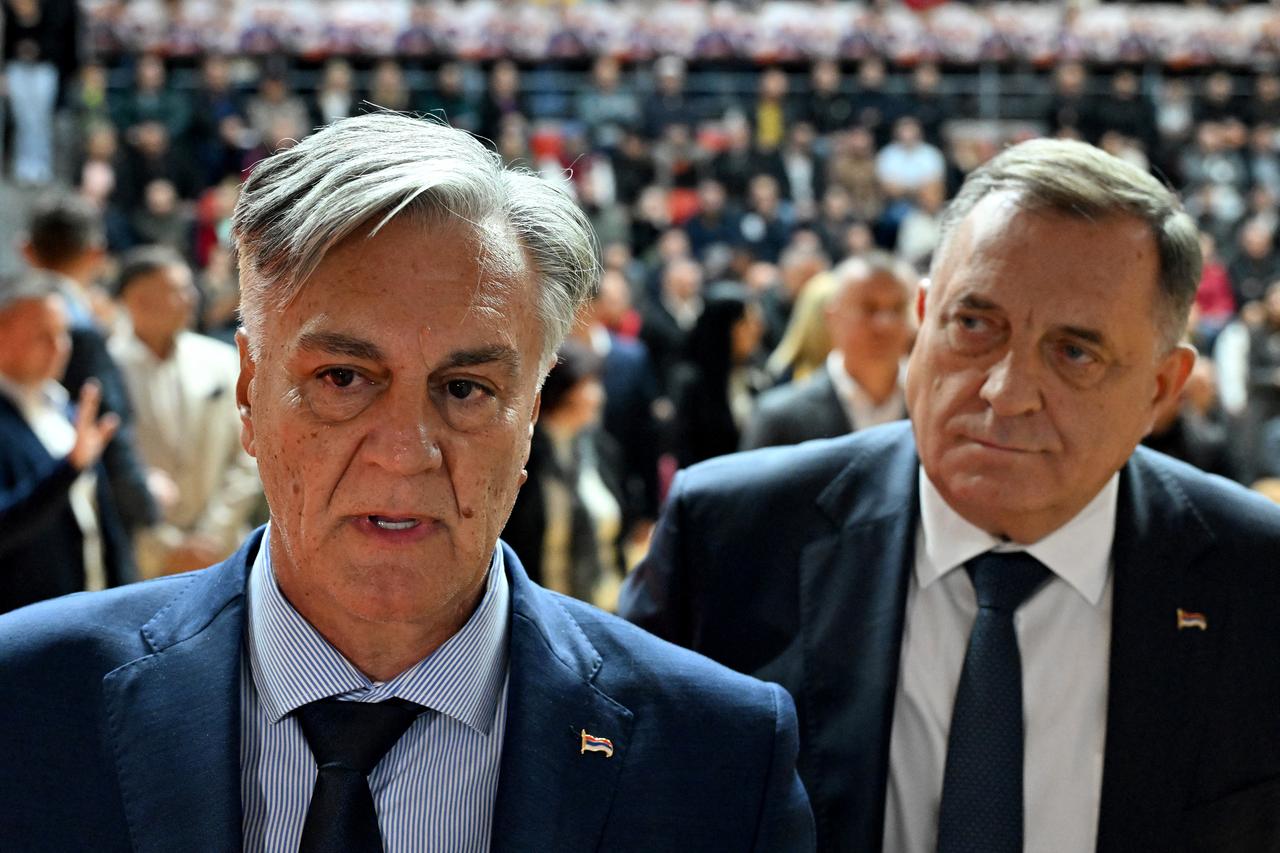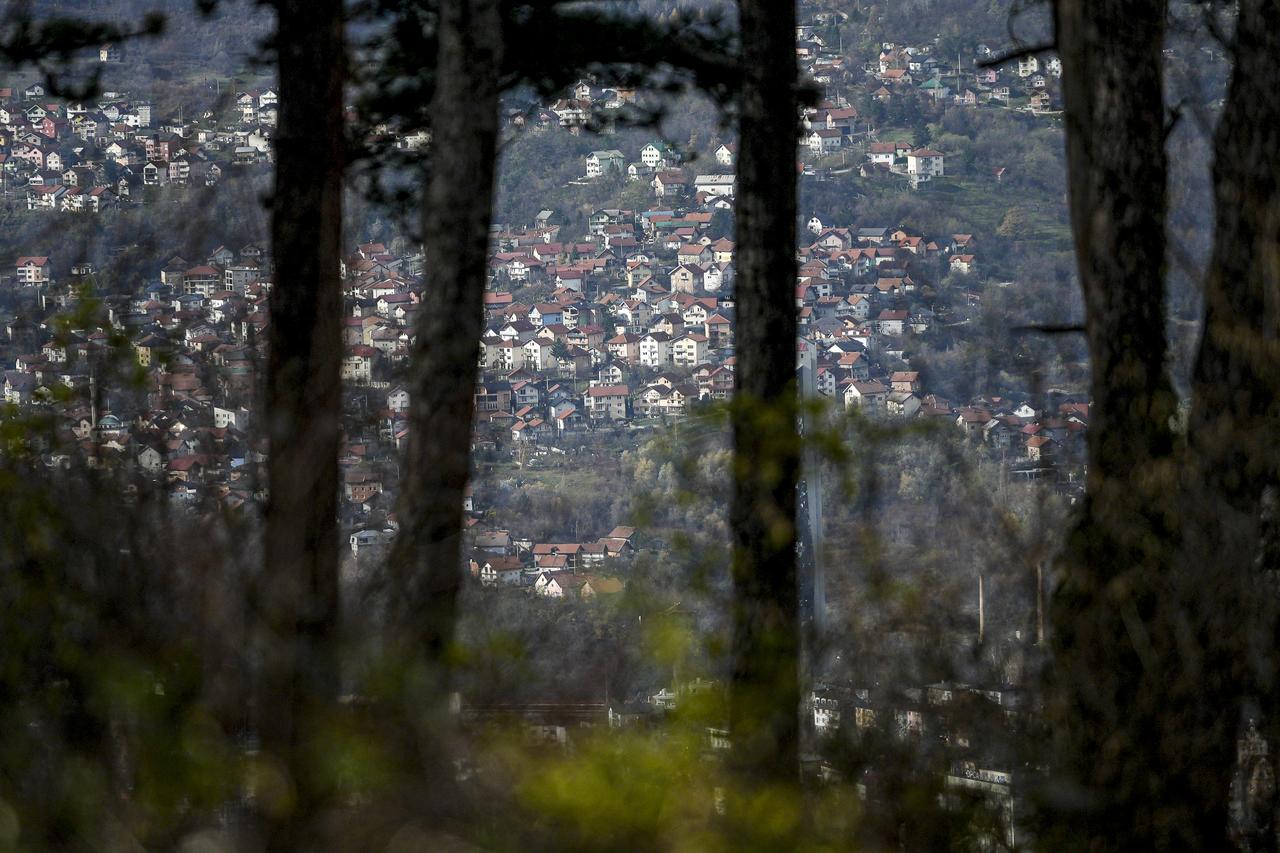
This article was originally written for Türkiye Today’s bi-weekly Balkans newsletter, BalkanLine, in its Nov. 22 issue. Please make sure you are subscribed to the newsletter by clicking here.
This month marks the 30th anniversary of the Dayton Peace Agreement, the deal that silenced the guns in Bosnia and Herzegovina but left behind a complex, often paralyzed state.
As we mark this milestone, the fundamental question resonates louder than ever: Is Dayton still sustainable today? The agreement froze the conflict, but three decades later, the peace and stability feel increasingly fragile, haunted by ghosts of the past and the aggressive politics of the present.
Just as we are asking if the stability can hold, overcoming the fragility of the political system, the wounds of the war have been ripped open by fresh, horrific allegations. However, with overwhelming mounting evidence, which reportedly includes Serbian President Aleksandar Vucic, it is way past mere allegations.

Italian prosecutors in Milan have opened a probe into the "sniper safari," investigating claims that wealthy foreigners paid Bosnian Serb forces during the siege of Sarajevo for the "privilege" of shooting civilians, including children.
For those in the capital, Sarajevo, it reopened old wounds from the 1,425-day blockade that saw its streets become a killing ground. These resurfacing claims are not just historical footnotes; they are reopening unhealed wounds for victims' families, serving as a grim reminder of the dehumanization that defined the war.
Resurfacing claims from decades ago, while the atrocities and genocide in Gaza continue, shows that the world hasn't changed much in the meantime, in my opinion. It just got worse.
So, this juxtaposition, a gruesome past resurfacing amid a paralyzed present, illustrates the current state of Bosnia. The country is not just stagnating; it is being dragged into a deepened, perhaps never-ending crisis.
Today, the institutions designed by Dayton are gridlocked, and the ethno-nationalist rhetoric that fueled the conflict is not fading; it is being amplified.
Nowhere is this more visible than in the Republika Srpska, which heads to early elections on Sunday. These elections were triggered after the dramatic removal of Milorad Dodik from the RS Presidency following a court ban.
However, Dodik is far from gone. He is rallying for his hand-picked successor, Sinisa Karan, against opposition candidate Branko Blanusa. But the campaign has been defined by Dodik’s own voice.
Very recently, during a rally, Karan told the crowd, "They wanted to get rid of one Dodik, but now they'll have two Dodiks!"
I think this very statement confirms that Dodik is far from retirement; he is just stepping behind the curtains to continue to be that populist leader who threatens Bosnia’s stability.

On top of the "sniper safari" claims dominating the headlines, Dodik is actively deploying the very rhetoric used during the war, anti-Muslim narratives, and secessionist threats to mobilize his base.
During a rally last week in East Sarajevo, Dodik said, "This city (East Sarajevo) must not allow further Islamization. Forget the fairy tale that ‘we are the same people’; we are not even of the same faith. No one lies more or worse than a Turk."
We all know what he means by “Turk.” Is Dodik all talk? Maybe. But the revival of this kind of rhetoric never brings any good. That's for sure.
The main question remains: Will these elections bring about change? It is unlikely. Polls indicate that Karan and Blanusa are neck and neck, which means a small number of votes will decide the winner.
However, the vote is less about a new direction and more about a referendum on Dodik’s shadow rule.
In fact, despite his removal from office, Dodik remains the most powerful figure in the entity. He has successfully consolidated his position, emboldened by a shocking twist: the recent removal of U.S. sanctions against him in late October.
This move, which Dodik hailed as a "correction of the great injustice," has allowed him to frame himself as a victor against international pressure while continuing to undermine the state from his position as party leader.
Last week, U.S. lawmakers Gregory W. Meeks and Bill Keating slammed this decision, sending a letter to Secretary of the Treasury Scott Bessent and Secretary of State Marco Rubio expressing strong opposition.
This is a very important step, which further confirms the fallacy of this decision.
No matter what the election results bring on Sunday, Bosnia marks the 30th anniversary of Dayton in a very cautious and dangerous atmosphere. The peace and stability have rarely felt this cold in Bosnia.